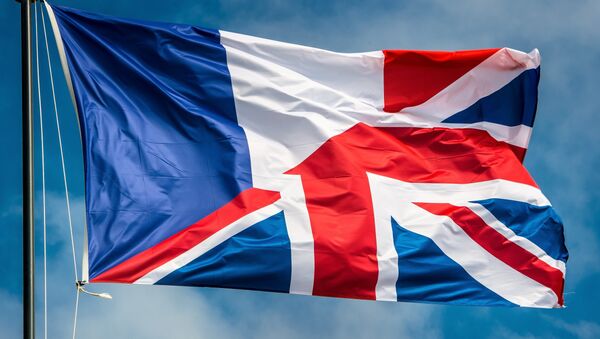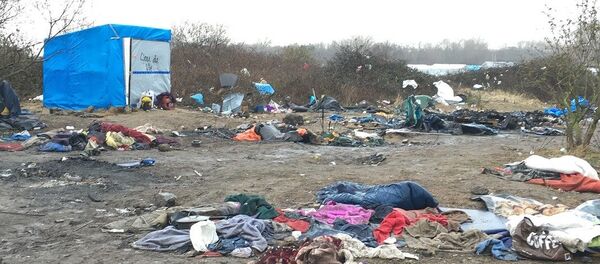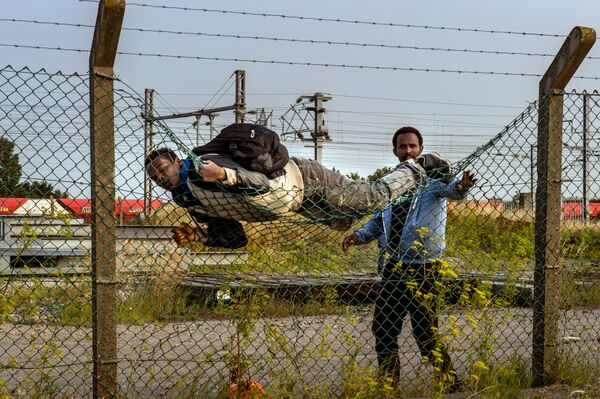In a special agreement with the French — known as the Le Touquet treaty — the UK Border Agency processes migrant applications on French soil, which means that — when they are refused permission to travel to the UK by train or ferry — they remain in France.
It is at that point that many migrants have made their way to the freight terminal at Coquelles, near Calais, where they have repeatedly cut through security fences and stormed the freight terminal, causing the rail services to be canceled — which, in turn, has caused massive delays and traffic chaos either side of the English Channel.
There had been calls in France to tear up the agreements and allow the migrants total freedom to cross the Channel, where they would end up in and around Dover, causing massive chaos and a great deal of public anger.
Migrant Flood
If the border controls were to be removed from the French side, asylum seekers would be allowed to exit from France, resulting in thousands of people flooding across to Dover and the surrounding region. The issue of immigration was top of the agenda in the run-up to the referendum.
The agreement to maintain the special border arrangements — which includes French border guards checking passengers at the St. Pancras, London end of the Eurotunnel rail line — is a significant diplomatic win for Theresa May, on her first visit to Paris as prime minister.
Le Touquet (UK-France Calais border agreement) set to become a French election issue: Hollande says will keep it, Juppé said he'd scrap it
— Alberto Nardelli (@AlbertoNardelli) July 21, 2016
Speaking at the Elysee Palace, May said:
"Le Touquet is of benefit to both Britain and France, and we are both very clear it should stay."
Hollande said: "We want to keep it, and we want to improve it. Le Touquet ensures that we can say to migrants that there is no point coming to Calais as they will not be able to cross."
July #Calais census: 7037 people. 47 arrivals /day 761 children 608 unaccompanied @HelpRefugeesUK @teresapiacenti1 pic.twitter.com/RxAY4Hioc8
— Alison Phipps (@alison_phipps) 21 July 2016
The news comes as aid agencies said nearly 50 people per day are arriving at the tent community in Calais and there are now 7,307 migrants living there, mostly from Afghanistan and Sudan.




